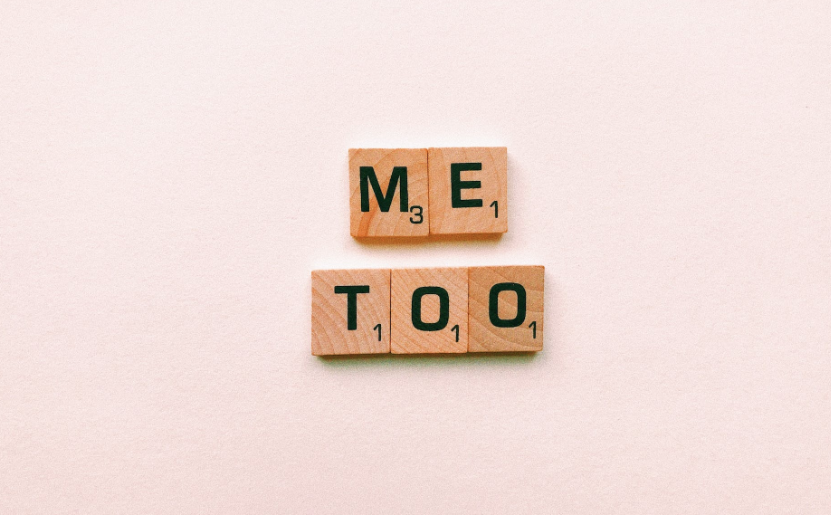October marks the fifth anniversary of the #MeToo movement, a movement that challenged the humble hashtag to become a home, a mansion, housing stories of women and people around the world who thought they were alone in assault experiences.
Coined by Tarana Burke almost a decade prior, the hashtag took an already powerful movement to viral status. It was one of the few times virality was as empowering as it was heartbreaking.
October also earmarks five years since the Harvey Weinstein investigation stepped onto everyone’s feeds. Although Weinstein wasn’t arrested until May 2018 (before the long-winded trial) and indicted in 2020, the #MeToo movement was an inarguable example of hashtag activism directing exposure and justice.
We now sit in 2022 knowing what we know, and the cynic in many of us might ask, after all this time, what has actually changed?
Elle recently asked some of Hollywood’s most influential women (part of their 2022 Women in Hollywood picks) to assess their takes on how much the movement has achieved and the jury appears to be divided.
Some powerhouses like Olivia Wilde and Sigourney Weaver shared the sentiment that what had changed was the sense of community between women as well as the “open communication” that hadn’t been easy to navigate before. As Sigourney shared:
“In my day, of course, there were these horrors going on. One friend would tell someone else, ‘Be careful of this guy.’ So it was all kind of under the radar. And to o have it out in the open and to see Harvey Weinstein punished and to see these men having abused their leadership positions for decades losing their jobs—we certainly have a long way to go, because the trauma stays with women—but I feel it was a huge sea change, and so welcome.”
Anne Hathaway also weighed in with positivity, commenting that the industry is beginning to become safer with more vigilance intact.
Others felt that there were still challenges that needed to be tackled.
Issa Rae for one shared that she feels we’re regressing. The reason being? There are “too many enablers for there to be real change” and that “Hollywood is very bad about consequences.”
The majority of the women interviewed shared that they felt there were more women present in the industry, but that there was a lot more growing that needed to be done surrounding progression as a whole.
And what of the world beyond Hollywood?
In South Africa, we had our own hashtag movement sparked by Uyinene’s murder. #AmINext had a different tone to #MeToo. It wasn’t uplifting in the same way; it was doused in collective fear. That didn’t make it any less impactful, in many ways its tone resonated with local women more. It highlighted the urgency of sharing our stories because for many that sharing was a matter of life or death.
South Africa became more vocal after #AmINext, but the statistics didn’t always coincide. 2020 saw the launch of the National Strategic Plan to Combat Gender-based Violence and Femicide (NSP),but 2021 saw devastating GBV statistics with an increase in the second quarter from 2020.
Then, for this year’s first quarter, the government shared that there were over 11 000 assault GBH cases, and attempted murder dockets were opened for over 1400 women and children who escaped death.
Looking over the statistics, it’s easy to feel dishearted, to feel like we’ve already walked a collective length together to little avail. Still, the sentiments of Hollywood ring true even here. There is still a feeling of community, of safety with other women (even if you’ve never met them) simply through sharing what we previously kept hushed.
One needs only to look at platforms like Keep The Energy and SA Women For Change to feel a sense of comradery.
What about cancel culture? You’ve probably encountered opinions around ‘cancel culture’, especially if you follow these platforms. Cancel culture exists as a double-edged sword, with some calling it a force of “chaotic good” that takes a “guilty until proven innocent” narrative which isn’t always fair. But, in countries like South Africa, many believe that cancel culture’s greater purpose has resulted in a hyper-cautious state of social interactions. It’s a topic society is still navigating.
As Ariana DeBose shared of Hollywood’s cancel culture, “For specifically men, it feels like there’s a tone of fear around being accused. So, I can’t tell if there’s been change or if folks are just scared.”
Then there’s the debate around reporting cases to the police. Does more active reporting of GBV cases mean that more women feel they can trust the police to take matters seriously, or do the numbers simply mean that violence has increased?
The statistics are disappointing. Police infrastructure needs reforming, and many are placing bets on the recently announced National Council on GBV and Femicide Bill to make these changes.
ALSO SEE: National Council on GBV and Femicide Bill to be introduced to parliament
Still, what both movements did was raise the alarms on accountability, roaring from the public in a way that says “even if there are more cases, more people will be held to their actions,” something that previously wasn’t the norm.
We still have mountains to climb as women, but at the very least the world’s eyes are fixed on anyone who tries to set us back.
ALSO SEE:
Doccie about local woman who was abducted as newborn now screening
Feature Image: Pexels

